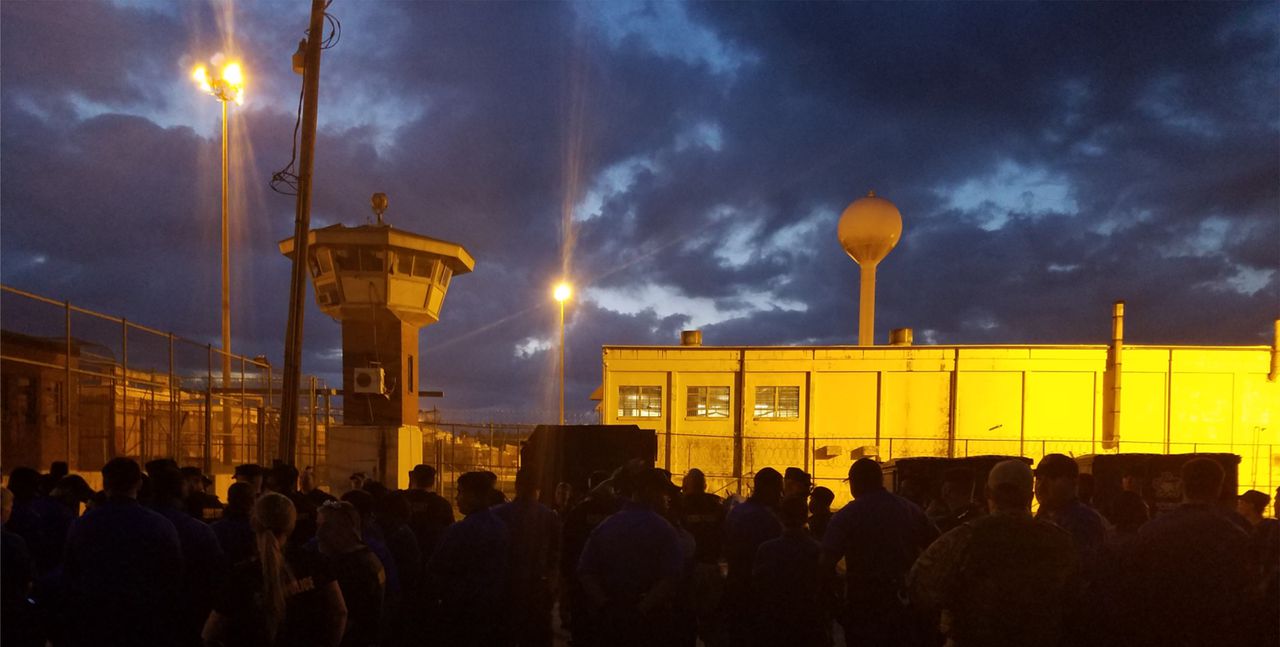Death row inmate argues Alabama ‘will fare no better’ if second execution is attempted
The lawyers for an Alabama Death Row inmate argue the state “will fare no better in a second attempt to execute” a man who was set to die in November, but survived after the execution couldn’t be completed during the allotted time.
The comments came in new documents filed Monday in Kenneth Smith’s federal lawsuit. Smith was set to be executed by lethal injection in November 2022, but survived after Alabama Department of Corrections workers couldn’t find veins to run the lethal chemicals through before the state’s death warrant expired at midnight. The 57-year-old later claimed in court filings he laid on a gurney and was poked with needles for four hours before the state called off the execution.
Smith’s lawyers are asking the court to bar the state from attempting to execute Smith using lethal injection a second time, adding that he “faces an objectively intolerable risk that the same thing will happen if ADOC is permitted to try to execute him by lethal injection again.”
On the night of the first set execution, the filing says, Smith was strapped to the gurney and “readied himself for his anticipated imminent death by ‘focus[ing] on the glowing cross-shaped lights’ in the execution chamber and trying to ‘maintain his dialogue with God,’ including by ‘thank[ing] God for the week he had just had with his family’ and singing ‘I’m not alone’ quietly.”
Read more: Alabama AG: ‘Pain related to difficulty’ from execution IVs not cruel, unusual punishment
“It was important to Mr. Smith to maintain his composure for his family and other witnesses and to express his final words. But as time went on without action, without his witnesses arriving, and without explanation, Mr. Smith became increasingly ‘hopeless[],’ ‘distressed’ and ‘fear[ful] that his witnesses would not make it in time.’ Mr. Smith lay strapped to the gurney in that condition and as ‘he felt as though his circulation was being cut off’ for more than two hours without explanation about what was happening,” according to the filing.
The filing is the first in Smith’s case since Gov. Kay Ivey and Alabama Department of Corrections Commissioner John Hamm announced Friday afternoon that the state had finished its internal review of the prison system’s execution process and was ready to begin executing death row inmates once again.
Smith’s lawyers argue that nothing from that investigation was reassuring to the department’s capability to carry out lethal injections. “… the planned changes to ADOC’s execution procedures do not inspire confidence that they will reduce the intolerable risk to Mr. Smith from a second attempt to execute him by lethal injection,” the filing says.
“Contrary to ADOC’s repeated public statements, its problem is not that it lacks sufficient time to place IVs. The problem lies elsewhere in its protocol or the personnel charged with implementing it. If ADOC could not place IV lines in Mr. Smith in more than one hour when it attempted to execute him in November, there is no reason to believe that ADOC will have greater success with more time during a second attempt…”
The federal lawsuit was initiated before the execution attempt and has continued since, with Smith’s lawyers arguing the state shouldn’t be allowed to seek another execution date for lethal injection. Earlier this month, the Alabama Attorney General’s Office asked Middle District of Alabama Judge Austin Huffaker Jr. to dismiss the lawsuit. Smith’s legal team had until Monday to respond to that motion.
Smith’s lawyers argue that his was the third consecutive execution “that the Alabama Department of Corrections botched in the space of four months all for the same reason—ADOC personnel are incapable of reliably placing IV lines,” referencing the controversial execution of Joe Nathan James Jr. in July and the failed execution attempt of Alan Miller in September.
The state “apparently intend(s) to execute Mr. Smith by the very same method that failed in their first attempt and that failed for the same reason three consecutive times over four months,” the filing states.
Smith’s lawyers claim in Monday’s filing that he suffers from “severe and ongoing physical and psychological pain.”
Last week, Smith’s attorneys told the judge that the state hasn’t cooperated in discovery—or providing documents and other information—in the case.
Legal groups and others across the state have expressed disappointment in the three-month investigation, calling for an independent review.
